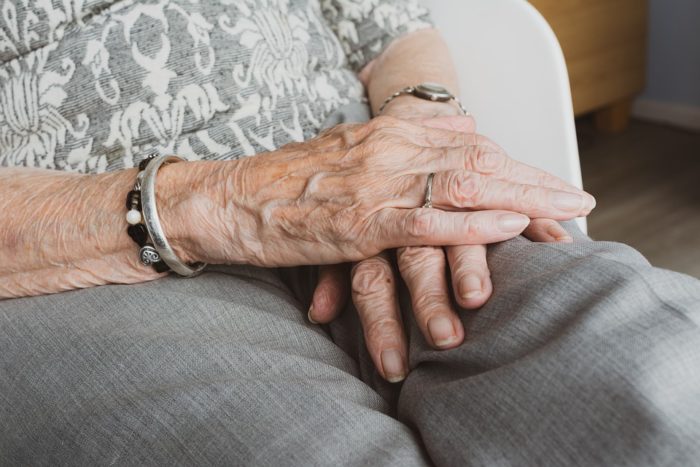Are you someone who feels irritable, has trouble staying on task, and is always fatigued? Your first thought might be that you’re suffering from depression, but there’s another thing that could be causing the same symptoms: not getting enough sleep.
I have suffered from sleeplessness (lack of sleep) myself, and so I am living proof of how deeply it can impact mental health. In this blog, I will present my reflection on how a lack of sleep can mask depression-like symptoms and the difficulties I faced when I tried to differentiate the two from each other.
Lack of Sleep and Depression 320/58
I remember the first time I realised that things were not okay. After spending a tough week at work and staying up late to meet deadlines, I found myself feeling depressed. At first, I thought it was the regular pressure of work. However, as the days passed, the two-week period made me wonder if something else was bothering me.
I used to say, “The symptoms I went through were exactly similar to what I had read about depression.” The symptoms, such as:
- Persist fatigue
- Difficulty concentrating
- Irritability
- Loss of joy
- No motivation to do any basic tasks, even activities once enjoyed.
- Social isolation
I was really confused. I thought, surely, this wasn’t one of those phases of life that would soon be over. Maybe I was getting depressed, or my sleep habits were causing these feelings.
Am I depressed or sleep deprived 20/n/a
Let us understand this through the neurological connections point of view. When considering the causes of lack of sleep and its similarities to depression, you should be aware of the role of the nervous system in these processes. Lack of sleep causes disruptions in the activity of serotonin and dopamine in the brain (which are involved in the development of this disorder).
Studies have found that persistent lack of sleep can disrupt various amygdala structures in the brain, which is the part of the brain responsible for processing emotions. This can lead to an increase in the intensity of emotional reactions and a decrease in the ability to focus on mood control, as found in major depressive disorder.
Taking Steps
I understood the symptoms of depression and lack of sleep. But I was not sure if I was just suffering from a lack of sleep or something else. I consulted a psychiatrist about my problem, who has been most helpful to me in this journey. I adhered to my treatment plan.
Besides, I focused on keeping my sleep quality good, that are key to long-term alleviation. I followed the following procedures:
Creating a regular sleep schedule:
I made a conscious effort to follow my schedule of sleeping and waking up at the same time every day, even on weekends. In the beginning, this was very uncomfortable, especially when there was a social function or a work deadline that promised to keep me awake for a long time. However, I always patted myself on the back as it was an indication of the importance of regularity for my overall health.
Establishing a relaxing bedtime routine:
The bedtime routine I introduced to my kids included, among other things, reading a book, doing light stretching exercises, and not using electronic gadgets at least an hour before bedtime. This helped my body understand that it was time to sleep.
Improving the sleep environment:
I bought blackout curtains, a comfortable mattress, and made my bedroom cool and quiet. I felt the changes very quickly, and it made me a sleep champion.
Limiting caffeine intake:
I’m a coffee lover (or to say addicted to drinking too much coffee per day). My psychiatrist recommended I change my lifestyle, including limiting drinking coffee habits. I decided to keep my caffeine intake to a minimum and also drink it in the evening (like a healthy schedule). Although neither of these would cause lack of sleep, they could affect my ability to get a good night’s sleep.
Incorporating regular exercise:
I began moderate exercise with the promise that I would not do strenuous exercise at least a few hours before bedtime. My body’s internal clock reset, allowing me to fall asleep and wake up when I wanted.
Myths and misconceptions debunked
As I gained more understanding about sleep recovery, there were a few myths that were slowing down my recovery process:
Myth 1: I can get enough sleep on the weekends
I used to think I could get enough sleep on the weekends because the week was designed to compensate for it by losing a few hours of sleep. However, later, I learned that this disrupted sleep pattern can actually disturb our circadian rhythm and make our sleep even worse.
Moreover, having a proper sleep schedule for the brain to function is a must. Sleep represents not a single break but a process needed for our brain to recover, to memorize, and to regulate emotions. When we cannot obtain sufficient sleep regularly, we block these important functions, which lead to symptoms very close to those of depression.
Myth 2: I can function well with just a few hours of sound sleep
One of my aspects was that I took pride in getting little sleep. But over time, I realized that I was not just harming my ear, but my entire head, which in turn affected my mental health. This problem was discovered after I underwent sleep therapy. This is how I understood that poor sleep quality was harming my memory and report-writing skills.
The role of a psychiatrist in my journey
My journey through the ups and downs of sleep and mind made me realize the need to seek professional help. So, I decided to visit a psychiatrist, and this step proved to be crucial in my recovery process.
Professional Assessment:
My psychiatrist did a very detailed assessment of my condition, such as symptoms’ severity, root causes, family history, nutritional deficiencies, and underlying medical conditions. I shared all my worried feelings with her.
Personalized Treatment Plan:
Based on my condition severity, my treatment plan was a combination of cognitive behavioral therapy with a sound sleep schedule and a short-term course of anti-anxiety medication (as overwhelming anxiety makes sleep difficult in my case).
Furthermore, my psychological fears were about medication use, but my psychiatrist explained to me the potential benefits of short-term medication to help organize my brain and sleep cycle. Even, I was even informed about the pros and cons of the plan.
Continuous Support and Monitoring:
Weekly follow-ups with my psychiatrist made it possible to monitor my progress. We made changes to the treatment plan as needed, ensuring that both my sleep problems and mental health were being adequately addressed.
The Takeaway
Sleep plays a key role in controlling our mood, memory, and general health. For example, if we don’t get enough sleep, the areas of the brain that regulate emotions are affected. As I was receiving practical advice from my mental health expert to improve my sleep habits and also implementing healthy lifestyle changes, I was able to see a significant improvement in my health. My morale improved. I became more composed and back to my natural self.
Keep in mind that even though lack of sleep can have symptoms similar to depression, remember that you should not self-diagnose and treat yourself. The right therapy and counselling options, like the ones I got from a psychiatrist, I highly recommend to help you heal better.
Remember that seeking professional help is not a sign of weakness. Seeking professional help to get better is a proactive step and necessary. Like, for example, we can’t self-treat a broken arm ourselves. A Broken arm needs an X-ray test to see if there is a crack and how badly the condition is. Treatment based on the condition is crucial. And pain-killing medicines for the pain, if needed.
I was already aware of many relaxing sleep techniques (I know many of you are also well aware), but there were so many things needed to understand. I was so confused and didn’t know where to start or which techniques were really good. I didn’t even get to the beginning because I was having a hard time continuing with the techniques that I knew would help me get my sleep back. My therapist guided me through CBT (cognitive behavioral therapy) treatment that helped me change my thoughts to be more positive. This was a turning point in my road to recovery.
















